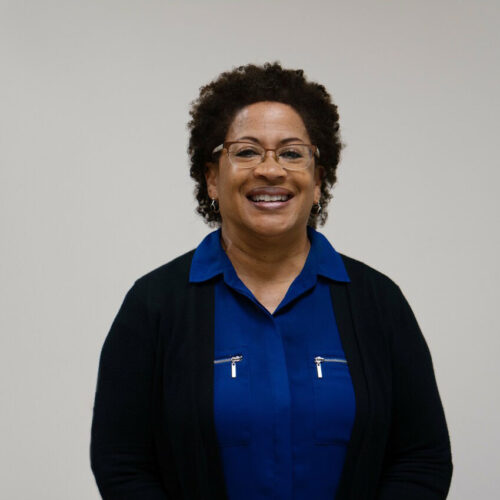
Annual Osgood Memorial Lecture to feature earth scientist and museum educator Lisa White
The College of Wooster Department of Earth Sciences will welcome Lisa White, director of education and outreach at the University of California Museum of […]
Earth Sciences combines principles of physics, chemistry, and biology to understand Earth history and Earth processes. Students with an interest in geology and environmental science can add an Earth Sciences minor to nearly any major course of study and still graduate in four years because of the interdisciplinary nature of the curriculum at Wooster. To earn a minor, students must complete a course in Earth Systems and five other classes in the Earth Sciences discipline.
View 2022 Annual Report (PDF)Learn about Wooster’s STEM community through the STEM Success Initiative
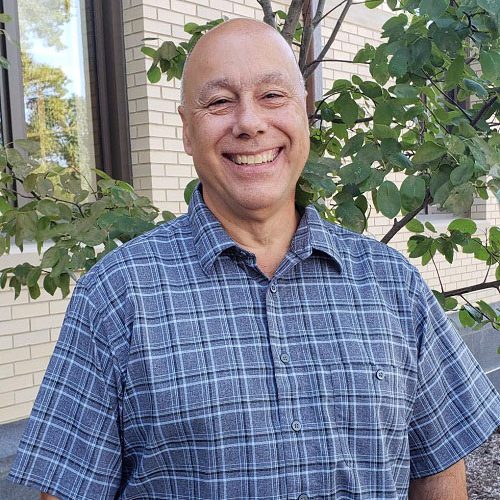
Instrument and Lab Tech/Machinist - Biology, Chemistry, Earth Sciences, Physics

The College of Wooster Department of Earth Sciences will welcome Lisa White, director of education and outreach at the University of California Museum of […]
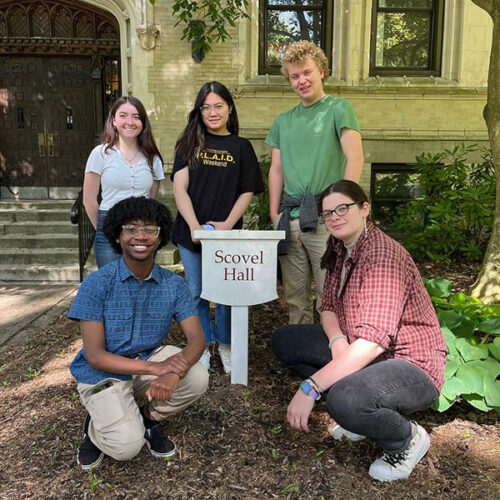
Tyrell Cooper ’25, Earth Sciences Ihaja Metz ’26, Earth Sciences Mary Palmieri ’26, Earth Sciences My Pham ’25, Earth Sciences Advisors: Meagan Pollock, Greg Wiles […]
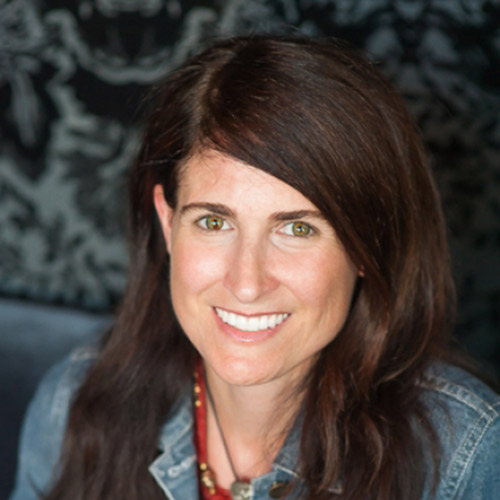
The College of Wooster will welcome Julia Clarke as she presents a lecture titled “The Secret Lives of Dinosaurs” on Thursday, Oct. 12 at […]
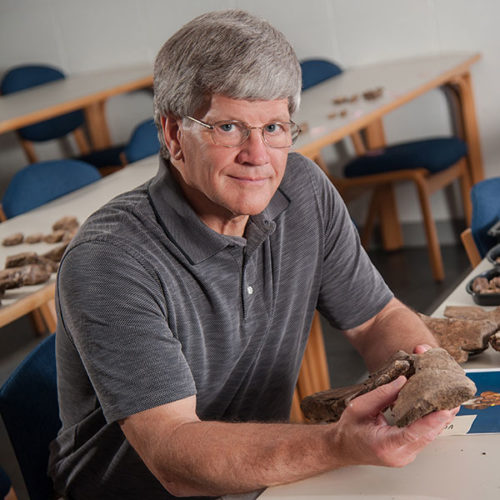
A 30-year archaeological survey and excavation at sites in Ohio’s Walhonding Valley, about an hour south of Wooster, has discovered evidence that the abrupt […]
Six courses in Earth Sciences must be completed to earn a minor.
Completion of the course Earth Systems is required.
The remaining five courses can be Earth Sciences elective courses of the student’s choosing, with no more than two courses at the 100-level.
In their junior year, Geology and Environmental Geoscience majors undertake a Junior Independent Study (I.S.) project in close collaboration with their peers and a faculty mentor. Students study the concepts and techniques of Earth Science research to prepare for their senior I.S., a capstone experience that challenges them to design and pursue a research project that makes an original intellectual contribution to the geosciences. Because Earth Sciences are best learned by doing, majors often participate in extended field/lab work or a research program during the summer between their junior and senior years. In recent years, students have undertaken field studies in diverse places in the U.S. (Alaska, California, Indiana, Kentucky, Massachusetts, Minnesota, Oregon, Pennsylvania, Utah, Vermont, Washington) and across the globe (Bahamas, Belize, British Columbia, Cyprus, Mongolia, Iceland, Israel, and western Europe). Our students have worked alongside researchers in labs at The Ohio State University, UNC Chapel Hill, UMass Amherst, and the American Museum of Natural History, among other institutions.
| Student | Year | I.S. Title | Major 1 | Major 2 | Advisor |
|---|---|---|---|---|---|
| Please search to view results | |||||
Name: Nathan Kreuter Major: Biology Minor: Earth Sciences Advisors: Dr. Andy Michel, Dr. Hilary Edgington The current rise of the global human population necessitates […]
Attracted to the idea of mentored research and “the opportunity to delve deeply into a topic and become an expert,” Claire Wineman ’21 came […]
Shelley Judge, associate professor of Earth Sciences, and her advisee, Morgan Pedroso Curry '21 share how they maintained a mentoring relationship despite challenges of the pandemic.
Brandon Bell looks at the 1906 San Francisco earthquake
Graduates from Wooster with Earth Sciences training go on to jobs specializing in natural hazards, non-renewable and renewable energy, and water resources. They work for natural resource companies, consulting firms, and government agencies with job titles ranging from project manager and lab director to engineer and data analyst. Some go on to careers in science education in schools, national parks, museums, and non-profit organizations. Others pursue careers in communication as journalists, illustrators, and editors for media outlets, such as National Geographic. Many of our graduates make their way to top-tier graduate or professional programs to build careers in research, law, and more.
The research opportunities at Wooster prepared Sarah McGrath ’17 for her graduate studies
As a geologist for the United States Geological Survey, Kelli Baxstrom ’16 put much of the expertise learned from her time at The College […]
CEO of California’s Milk Advisory Board, John Talbot ’81, supports dairy farmers through challenges of pandemic
The Richard G. Osgood, Jr., Memorial Lectureship in Geology was endowed in 1981 by his three sons in memory of their father. Dr. Osgood was a paleontologist with an international reputation who taught at Wooster from 1967 until 1981. Funds from this endowment are used to bring a well-known scientist interested in paleontology and/or stratigraphy to the campus each year to lecture and meet with students.
The Department of Earth Sciences is housed in Scovel Hall, one of Wooster’s most attractive buildings. Equipment available to earth sciences majors includes binocular and petrographic microscopes, a video system attached to a microscope, computers, photomicroscopes, zoom transfer stereoscope, fluid inclusion system, variable magnification scanning stereoscope, diamond saws and and rock grinding equipment, photography labs, thin-section machine, mapping projector, seismic station, and large sedimentological, paleontological and mineralogical collections. The earth sciences library holdings are unusually complete for a small college.
The paleontological facilities at Wooster include standard rock saws and grinders, along with Nikon microscopes, digitial imaging systems, and fossil preparation tools. We also have extensive research collections, particularly for carbonate hardgrounds, ancient bioerosion, Ordovician invertebrates, and Jurassic limestones and fossils.
Ohio is a wonderful place to pursue undergraduate research in sedimentology and stratigraphy through Wooster’s Independent Study program. The local rocks provide an excellent sample of Paleozoic paleoenvironments and rock types. Our equipment includes GPS devices, computers, digital imaging equipment, numerous Nikon petrographic and dissecting microscopes, and the standard rock preparation tools, such as saws, grinders, and thin-section machines.
Dendrochronology, also known as tree-ring dating, is the method of scientific dating based on the analysis of tree-ring growth patterns. The tree-rings extracted from old wood can be calendar-dated and thus we can determine the calendar date the tree was cut. The tree-ring series are also records of past drought. We are interested in sampling historical structures for their tree-ring records. Our goal is to assemble long tree-ring chronologies from oaks by sampling both living trees and old wood. The data will be used by us and others in modeling past droughts in Ohio and together with similar records across North America.
The acquisition of an X-ray Fluorescence Spectrometer (XRF) and an X-ray Diffractometer (XRD) was funded by the National Science Foundation to support Wooster’s robust undergraduate research program. In addition to providing our students with valuable hands-on analytical experience, we hope that the instruments will foster creative collaborations and interdisciplinary research. Please explore this site to learn more about the instruments, who we are, and the research possibilities.
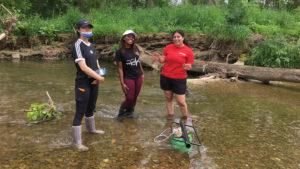 GeoEXCEL
GeoEXCELWe recognize that you are uniquely you and we want to support you on your personal pathway toward a successful STEM career.
GeoEXCEL explores geoscience careers and develops workforce skills to help BIPOC and students from underrepresented communities succeed and thrive in STEM. Thanks to a grant from the National Science Foundation (NSF), Wooster is excited to be able to grow these unique opportunities for interested students.
Read about the grantGain hands-on experience in a STEM field through a paid summer research internship!
If you are interested in a STEM career that makes a difference, apply for our AMRE program with community partners focused on local issues. This is a paid summer research and internship position in which all costs – housing, travel, food, and all project costs – are covered.
No experience is required. We’re looking for rising sophomores who are members of groups underrepresented in STEM careers. If you’re curious about the natural world, want to help the community, and are willing to try new things and work with new and different people, we want you to apply.
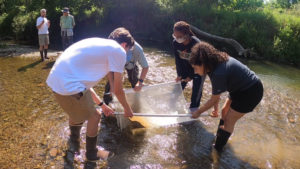 What will you gain?
What will you gain?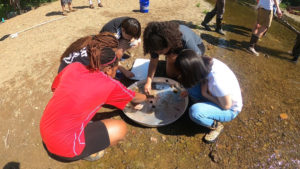 Thinking about a STEM major? Wondering what you can do with your STEM degree?
Thinking about a STEM major? Wondering what you can do with your STEM degree?
Look out for our experiential learning course in Spring 2023.
Students in GeoEXCEL can take advantage of our unique peer support network, designed to match you with mentors who can serve as role models and who understand the academic and social challenges at the beginning of a STEM journey. If you’re interested in becoming a GeoEXCEL mentor, contact Dr. Meagen Pollock.